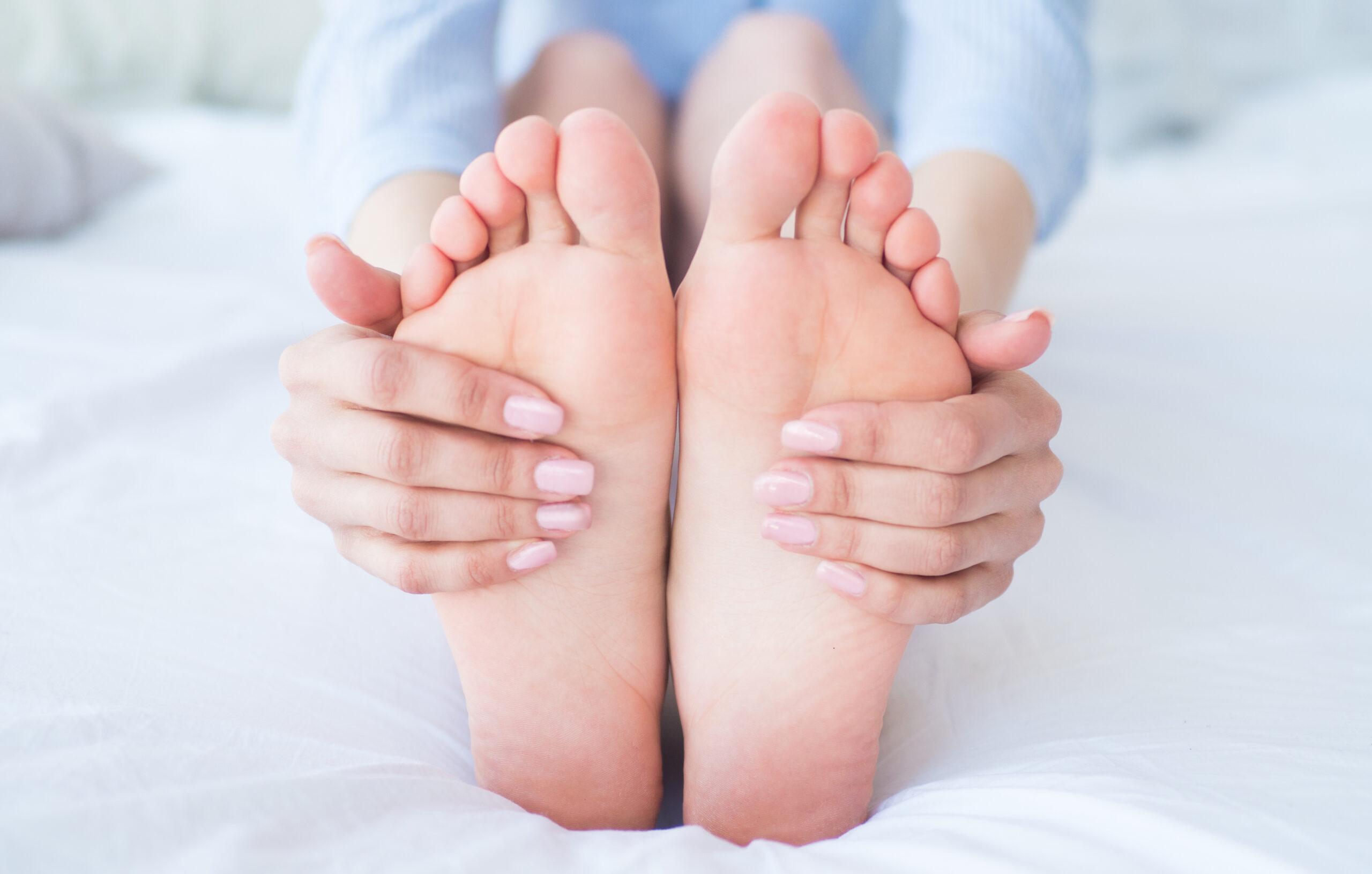Spring is just around the corner which means you’ll be saying “see you later” to winter boots (and hopefully all of this snow). When the weather warms up, people of all ages let their feet breathe by trading their snow boots for sneakers, slip-ons, and flip flops.
As the weather changes, do you know how to keep your feet healthy?

How to Maintain Your Foot Health
It’s crucial to keep your feet healthy throughout the year, but it’s especially important during the warmer months when we expose our feet to the elements.
Here are six tips for maintaining your podiatric health.
1. Practice good hygiene
Good hygiene is the first step when it comes to maintaining the health of your feet throughout the year.
- Bathing – When bathing, clean your feet with soap and water. Every so often, exfoliate to remove dead, dulling skin. After washing your feet, dry them thoroughly to help avoid fungal infections.
- Toenails – When clipping toenails, keep them trimmed short to avoid problems.
2. Protect your feet
An essential part of keeping your feet healthy is protecting them. You can protect your feet by always wearing shoes in public places like the gym or locker rooms. Consider having indoor shoes, like slippers, to keep your feet protected at home as well.
Wearing shoes helps you avoid harming your feet or getting bacterial or fungal infections.
3. Avoid sharing footwear
Sharing socks and footwear can promote the spread of bacterial and fungal infections.
Certain fungal infections, like athlete’s foot, are contagious and are spread through contact, sharing socks or shoes with someone who has an infection, or even just walking on a contaminated surface. Always wear shoes to protect yourself in public places and don’t share socks or shoes with others.
4. Shop for proper footwear
Breathability, comfort, and fit are important when shopping for footwear. Shoes that don’t allow feet to breathe or don’t fit properly can lead to many different podiatric issues.
Choosing the right shoe for you
Tight and restrictive shoes can cause issues with circulation and lead to foot problems like itchiness, clamminess, fungal infections, warts, and smelly odors.
Make sure your shoes fit the natural shape of your foot. The ball of your foot should fit the widest part of the shoe and your heel should fit without slipping.
Purchasing shoes that allow your feet to breathe is important to your foot health. Shoes made of only leather don’t allow as much air flow. Consider a combination of leather and mesh, all mesh, or breathable synthetic materials to help your feet breathe and prevent podiatric issues.
When buying new shoes, it’s also important to make sure they’re comfortable. It’s best to avoid pointy shoes and heels higher than 2 ¼ inches which can cause ingrown toenails and calluses. Instead, opt for rounded shoes with a stable heel for comfort.
5. Wear moisture-wicking socks
Just like selecting the right footwear, wearing the right socks can help keep your feet healthy.
Your feet have approximately 250,000 sweat glands. Sweat fosters bacteria growth, so wearing moisture-wicking socks can help protect your feet from various infections.
Avoid wearing socks made of non-moisture-wicking fabrics, like cotton, as these types of materials will hold in moisture rather than “wicking” it away. Instead, opt for socks made of materials such as polyester, nylon, or merino wool which help keep your feet dry.
6. Examine your feet
Once a week, perform a self-examination of your feet. Things to look for include:
- Discoloration of skin or nails
- Scaling or peeling between your toes
- Calluses or bumps
By regularly keeping an eye on your feet, you’ll be able to watch for changes. Should you notice anything out of the ordinary, visit a podiatrist.
Know When to Visit the Podiatrist
If you’re experiencing any foot pain, redness, swelling, itching, or discoloration, it’s time to see a foot and ankle specialist. Podiatrists diagnose and treat foot problems, and can prevent minor issues from turning into something significant.
No matter the time of the year, it’s important to take care of your feet. We hope these six tips help you maintain healthy feet.
Are you concerned about your foot health? Schedule an appointment with a podiatrist to have your feet checked.
